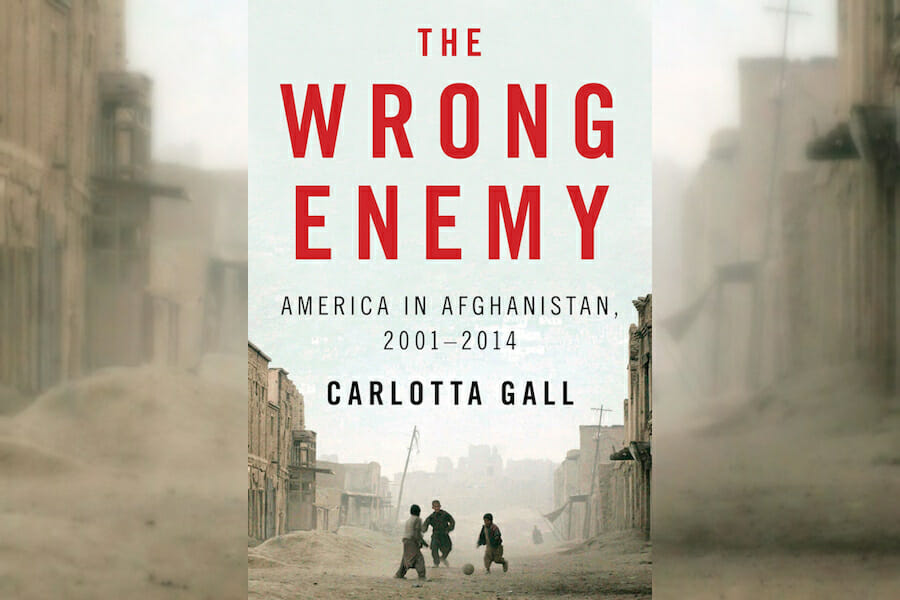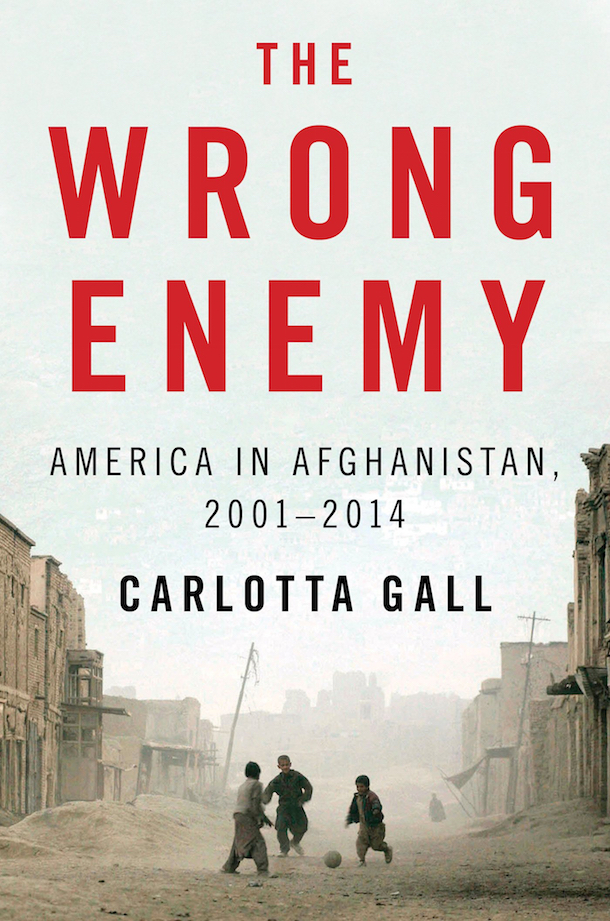
Books
Review of Carlotta Gall’s ‘The Wrong Enemy’
After over a decade of war in Afghanistan, the United States is still grappling with the problems that plague that country. These problems range from the existence of the Taliban and threats posed by al-Qaeda to a dependent economy whose survival hinges upon assistance from the United States. Multiple and complex problems abound in Afghanistan — multiplex indeed. One cannot help but ask: why hasn’t the United States eliminated the Taliban and put an end to the violence that claims the lives of many Afghan civilians and its own troops serving in Afghanistan?
Carlotta Gall, a seasoned reporter for the New York Times and author of a new book The Wrong Enemy: America in Afghanistan, 2001-2014 provides some answers to the question raised above. According to Gall, the United States has been fighting the wrong enemy in the wrong country. It was of course the late Richard C. Holbrooke, U.S. special representative to Afghanistan and Pakistan who first sounded the alarm, saying: “We may be fighting the wrong enemy in the wrong country.” Building on Holbrooke’s statement, Gall sets out to make a convincing case for why Pakistan is the real problem in the region.
Pakistan, dressed in the garb of an ally, has been the main driving force behind the violence in Afghanistan, Gall asserts. The question is why? Simply for hegemonic reasons, Gall writes.
The Pakistani army sees India as the biggest threat to its national security; and is under the paranoid impression that India is determined to wipe it out. To avoid such a cataclysm, Pakistan’s security apparatus has been training numerous terrorist networks and the Taliban — the Devil’s lieutenants — to use against India in guerrilla warfare, and whenever it wishes to carry out terrorist attacks within that country.
Pakistan understands that it is not within its capabilities to win a conventional war against India, hence it relies on the Taliban and their international associates. Contrary to the Pakistani army’s strategic calculation however, this approach, the use of terrorist groups, has not served its national interests nor its people well; and in fact its support of different terrorist groups has proved quite detrimental to the health and safety of its people. Gall adds: “Pakistan’s generals and mullahs have done great harm to their own people as well as their Afghan neighbors and NATO allies. Pakistan, not Afghanistan, has been the true enemy.”
The accepted opinion is that Pakistan began to support the Taliban and al-Qaeda after the US invasion of Afghanistan. This of course is not the case; and Gall provides a number of examples to illustrate thus. To be sure, Pakistan did not create the Taliban. The Taliban emerged out of the Afghan Jihad against the Soviets. Nonetheless Pakistan “acted swiftly to co-opt the movement. Before the summer of 1994 was over, Mullah Omar had acquired Pakistani advisors. People in Kandahar remember a Major Gul, along with Colonel Imam, the Pakistani special forces trainer,” Gall writes. The movement’s rhadamanthine approach and ruthlessness earned them the esteem of the ISI (Pakistan’s intelligence agency) — those bastard bureaucrats of terror and torture — and soon they, the Taliban, became Pakistan’s new instrument of policy in Afghanistan.

An ally is understood as a country that helps you fight your enemy. Pakistan is not an ally of the United States because it is has not been faithfully helping the United States in its fight against the Taliban. Furthermore, Pakistan’s spies have helped train al-Qaeda operatives to kill American soldiers. Gall states that for years American officials “failed to recognize the huge investment in time, money, and military effort that Pakistan had put into the Taliban from 1994 to 2001.” It was naive of American officials to believe that Pakistan would so easily cease support of a group whose security establishment it has been nurturing for decades.
The ISI began its funding and training of various pernicious Islamist groups to further its interests in Afghanistan in the 1970s. A complete abandonment of the Taliban, which Musharraf agreed to undertake should not have been bought by United States, as he was deceiving the United States. Pledging to the United States to give up helping and arming the Taliban meant that Musharraf “was going against nearly thirty years of Pakistani strategic thinking. American officials should have realized that it was inconceivable for Pakistan to give up on so much time and investment, or that the military and security establishment could change its institutional thinking so easily.”
One of the many things that makes Gall’s account fascinating is its reliance on primary accounts. To back up her argument of Pakistan being the true enemy, she quotes several Pakistanis whose lives have been devastated by their country’s involvement in Afghanistan. Brother of a Pakistani suicide bomber reveals to Gall: “All the Taliban are ISI Taliban. It is not possible to go to Afghanistan without the help of the ISI. Everyone says this.”
If I may be allowed to paraphrase Nietzsche, Pakistan, in its support of monsters to advance its agendas in Afghanistan has made its own people fall victim to the Taliban’s and al-Qaedas’ ruthlessness and barbarity. Gall supplies a statement from a former Pakistani intelligence official in which he revealed: “We indoctrinated [the Taliban] and told them, ‘You will go to Heaven.’ You can turn it around so suddenly.” What goes around comes around.
To date, America’s war in Afghanistan remains the longest in its history. No diplomat or general involved in the Afghan theater has come up with a swift resolution yet. A penetrating book in its entirety, America’s War in Afghanistan does not offer a way out of Afghanistan either, except to recount a few words from Habib Jalib, the former senator and leader of the Baloch National Party in Quetta who said: “America should have selected al Qaeda and the Taliban in Pakistan, rather than go to war in Iraq.” While Saudi Arabia and other Arab countries are funding the Taliban, Pakistan is training, arming, and protecting the group within its borders.
Locked in such darkness, hatred and enmity, one wonders if Pakistan will ever honor its commitment and finally stop supporting the Taliban and their al-Qaeda affiliates?

